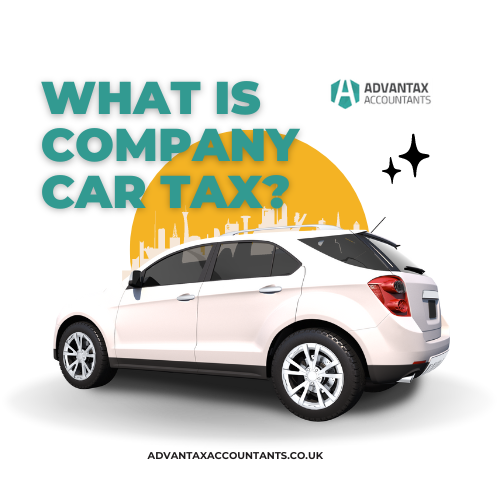Company car tax is payable if you are given a company car by your employer and it is classified by HMRC as a company benefit or BIK (Benefit in Kind). It’s important to know the amount of taxes you will have to pay if you receive a company car benefit. Not all cars have the same road tax deduction, which means it’s a good idea to check before choosing your car that you’re comfortable with how it will affect your tax position.
The UK government has announced that the company car tax threshold will increase in 2025. This means that more people will be able to claim a tax deduction on their company car. The government has said that the threshold will increase from £40,000 to £50,000. This is good news for company car drivers who have been worried about the potential impact of the tax on their take-home pay. The government has also said that the tax will not apply to electric cars. This is another boost for electric car drivers who are already benefitting from the government’s decision to increase the grant for electric cars. The government has said that the company car tax threshold will increase in 2025. This means that more people will be able to claim a tax deduction on their company car.
When is a Vehicle a Company Car?
A company car is a vehicle that has been made available to you by your employer as a company benefit – in addition to your annual salary. It should be a vehicle that you can use freely in your free time and, if necessary, also during working hours. Even if the only personal use of the vehicle is for commuting, HMRC will conclude that this is an advantage and will result in you paying tax
How Does the Company Car Tax Work?
Let’s say you have to choose between two jobs. One with great benefits and the other with the same great benefits plus a company car. It’s an easy choice, isn’t it? You go to work by car. But a company car may not be the ideal perk you first thought it was – there’s a lot more to consider than just the paint job. Company vehicles can have tax implications and may be less attractive depending on the vehicle type chosen. It can be confusing to understand and calculate, but this comprehensive guide can help you understand the amount of tax you should pay to help you decide which is the cheapest company car.
What Factors Affect Company Car Tax?
When it comes to company car tax, there are a number of factors that can affect how much you’ll pay. Here are three of the most important ones:
1. The CO2 emissions of your car
The amount of company car tax you’ll pay is based on the CO2 emissions of your car. The higher the emissions, the higher the tax.
2. The fuel type of your car
The fuel type of your car can also affect the amount of company car tax you’ll pay. For example, cars that run on diesel tend to be taxed at a higher rate than petrol cars.
3. The price of your car
The price of your car can also have an impact on the amount of company car tax you’ll pay. In general, the more expensive the car, the higher the tax.
Company Car tax and the Car’s CO2 Emissions
As of April 2020, the tax you pay on company cars in the UK is based on the car’s CO2 emissions. The amount of tax you pay is calculated as a percentage of the car’s list price, and the tax band your car falls into is determined by its emissions.
The percentage you pay is tiered, so the more emissions your car has, the higher the percentage of tax you’ll pay. The current rates are as follows:
0-50 g/km CO2 emissions: 0%
51-75 g/km CO2 emissions: 9%
76-94 g/km CO2 emissions: 13%
95-99 g/km CO2 emissions: 16%
100-104 g/km CO2 emissions: 19%
105-109 g/km CO2 emissions: 22%
110-114 g/km CO2 emissions: 25%
115-119 g/km CO2 emissions: 28%
120+ g/km CO2 emissions: 32%
So, for example, if you have a car that emits 100g/km of CO2, and it has a list price of £20,000, the amount of company car tax you’ll pay would be £3,800 (19% of £20,000).
If you’re a higher-rate taxpayer, you’ll pay 40% of the tax due on a car with emissions of 120g/km or more, so in the example above you’d pay £1,520 in tax (40% of £3,800).
If you’re a lower-rate taxpayer, you’ll pay 20% of the tax due on a car with emissions of 110g/km or less, so in the example above you’d pay £760 in tax (20% of £3,800).
The rates above are for cars registered on or after the 1st of April 2020. If your car was registered before this date, the rates are as follows:
0-130 g/km CO2 emissions: 15%
131-150 g/km CO2 emissions: 20%
How to Calculate Company Car Tax?
To work out how much company car tax you have to pay, HMRC will first take into account how much CO2 your car emits. This falls within one of the 18 emission bands above. The lowest band starts with vehicles emitting 0-50 g/km. The amount to be paid is shown as a percentage and you will notice that the diesel percentages are slightly higher than the petrol percentages as there is a 4% surcharge for diesel engines. This percentage is multiplied by the vehicle’s suggested retail price, MSRP, often referred to as the P11D amount or value, which is calculated using a top-up of certain costs associated with the vehicle. You can see how to calculate your P11D value here. HMRC also offers a comprehensive calculator to calculate how much tax you will have to pay.
The company car tax rates are adjusted every April in each financial year, but the current rates of 2023 are frozen until April 2025. For England or Wales, your company car tax depends on whether you’re a 20%, 40% or 45% income-tax payer. For Scottish people, company car tax depends on Scottish income-tax rates of 19%, 20%, 21%, 41% and 46%.
What is a Tax on Benefit in kind (BIK)?
BIK includes a range of perks that employers offer on top of your salary. They cover a number of things such as:
- Accommodation
- Mileage allowance
- Subscriptions to professional associations
- A company car
What is a P11D?
It is both a form and a value and they are not the same. Your employer will provide a P11D form summarizing the value of all your BIK by July 6 after the end of the tax year. Then, based on that report, HMRC determines what is taxable. In the case of a company car, you must determine the P11D value. It is based on:
- List the price of the car including VAT
- Shipping costs minus registration
- Vehicle tax in the first year
It is used in the company car tax calculation to determine the annual road tax payable on company cars. Remember, the higher the P11D value, the more tax you pay.
Tax Code for Company Cars
HMRC takes the value of your company car and adds it to your total income so it is taxed at the same time as your salary. Since a company car is classified as a benefit, your tax code will be reduced to allow additional income tax to be deducted from your salary. HMRC will adjust your tax code to include your car benefit and any other company benefits. Your tax number will then be passed on to your employer by HMRC and this will tell your employer the correct amount of income tax to be deducted from your salary. It’s common to get a K tax code, which means your tax-free personal allowance is reduced to zero due to your company car benefit.
NOTE:
A company car bonus increases your overall income, which means that part of your salary may be placed in a higher tax bracket as a result. This scenario needs to be considered when deciding on your company car as it can result in you paying more taxes than you initially thought.
Checking Your Company Car Tax is Correct
Checking that your company car data is up to date is a valuable exercise. HMRC needs to be informed of any changes so that they can provide your employer with the correct tax code so that the correct amount of tax is paid. For example, if you change company cars and the value is different, HMRC must be instructed to allow the appropriate adjustments to your code. An incorrect company car tax code means you’re either paying too much or too little income so it’s recommended you help HMRC get it right. You can check and update your company car tax online using the HMRC company car tax tool.
Can I Pay Less Company Car Tax?
Company car tax can be reduced, but you may have to make compromises on the type of car you choose. Three ways to pay less company car tax is to choose a car with:
- A lower P11D value.
- Less CO2 emissions. A different type of fuel than conventional petrol or diesel is worth considering. Electric and hybrid vehicles offer a greener choice, but may not be as inexpensive to buy initially.
- Your company car tax is also reduced if you pay part of the initial cost of the car or have limited access to the car, e.g. on a part-time basis.
Company Car VED tax
A final tax expense to consider for company cars is motor vehicle excise duty. The government exempts electric cars from the VED tax until April 2025. From April 2025, all electric cars will be subject to a standard VED tax of £165 per year and cars with a list price of £40,000 or more will be subject to an additional premium car tax rate of £355 per year. The premium car tax rate of £355 is payable from the second year and only for five years.


